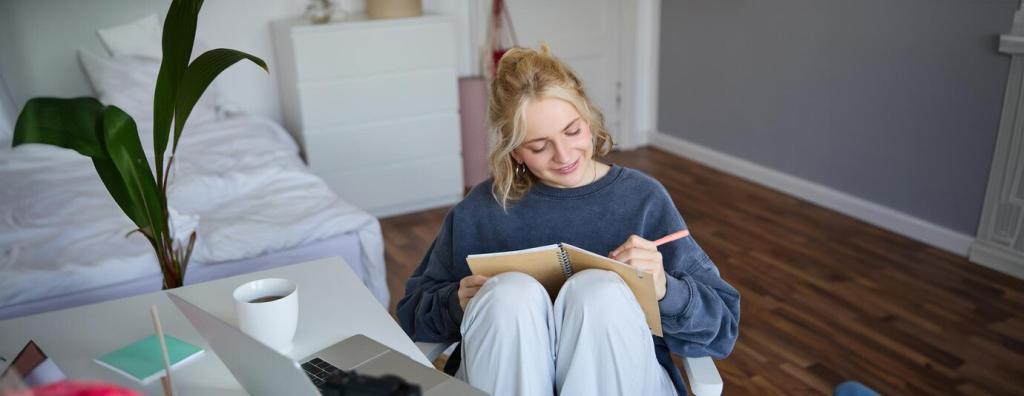The Benefits of Minimalism for Mental Clarity
Minimalism is more than just a design trend or a way to declutter your living space—it’s a transformative lifestyle that can significantly impact your mental well-being. By intentionally simplifying our surroundings and routines, we create space not only in our homes but also in our minds. This approach enables us to focus on what truly matters, reducing unnecessary stress and distractions that can cloud judgment and hinder personal growth. Embracing minimalism can lead to greater mental clarity, allowing us to navigate life with more purpose and calm.

Creating Space for Thought
Decluttering is at the heart of minimalism and plays a crucial role in improving mental clarity. By removing unnecessary items from our living and workspaces, we reduce visual and mental noise that can make it difficult to focus or relax. Each item we keep requires mental energy—whether it’s maintenance, cleaning, or even the subconscious weight of knowing it’s there. When we let go of the extra, we naturally create a more open and inviting environment that fosters clear, purposeful thinking and diminishes feelings of distraction or anxiety.

Simplifying Life’s Complexities
The pursuit of “more” often leads to unnecessary complications and stress. Minimalism provides a path to simplicity, encouraging us to pare down commitments, possessions, and even social obligations to what truly serves our well-being. By simplifying our lives, we remove sources of overwhelm and create a more manageable day-to-day experience. This simplification reduces the cognitive load on our brains, lowering the levels of stress and anxiety that result from juggling too many things at once.

Embracing Calm Through Environment
Our surroundings play a profound role in shaping our emotions and mental state. A minimalist environment, free from clutter and chaos, provides a calming backdrop that naturally soothes the mind. This sense of physical order translates to a psychological sense of control and peace, which can help reduce anxiety. When our personal spaces are organized and serene, it becomes easier to maintain perspective and respond thoughtfully to life’s pressures.
Enhancing Focus and Productivity

Streamlining Physical and Digital Workspaces
A cluttered desk or crowded digital workspace can be a breeding ground for distractions. Minimalism encourages us to keep only essential items and files within reach, creating a streamlined environment conducive to focus. By limiting visual and mental clutter, we can hone our attention on the tasks that matter most, improving both the quality and efficiency of our work. This deliberate approach not only boosts productivity but also reinforces good organizational habits.

Prioritizing Meaningful Tasks
Minimalism invites us to evaluate our time and commitments, prioritizing what aligns with our values and goals. By saying no to low-value activities and focusing on what’s truly important, we free up resources—mental, emotional, and physical—for meaningful work. This conscious approach helps combat feelings of overwhelm and ensures that our energy is directed towards activities that contribute to our growth and fulfillment, resulting in enhanced focus and sharper decision-making.

Facilitating Deep Work and Creativity
Eliminating excess allows us to enter a state of deep work, where distractions are minimized and our minds can fully engage with complex or creative tasks. Minimalist environments promote this flow state, as the absence of clutter helps reduce the number of competing thoughts or temptations to multitask. As a result, we’re better able to engage our creativity, problem-solve, and produce high-quality outcomes, all of which are vital components of long-term growth and satisfaction.
